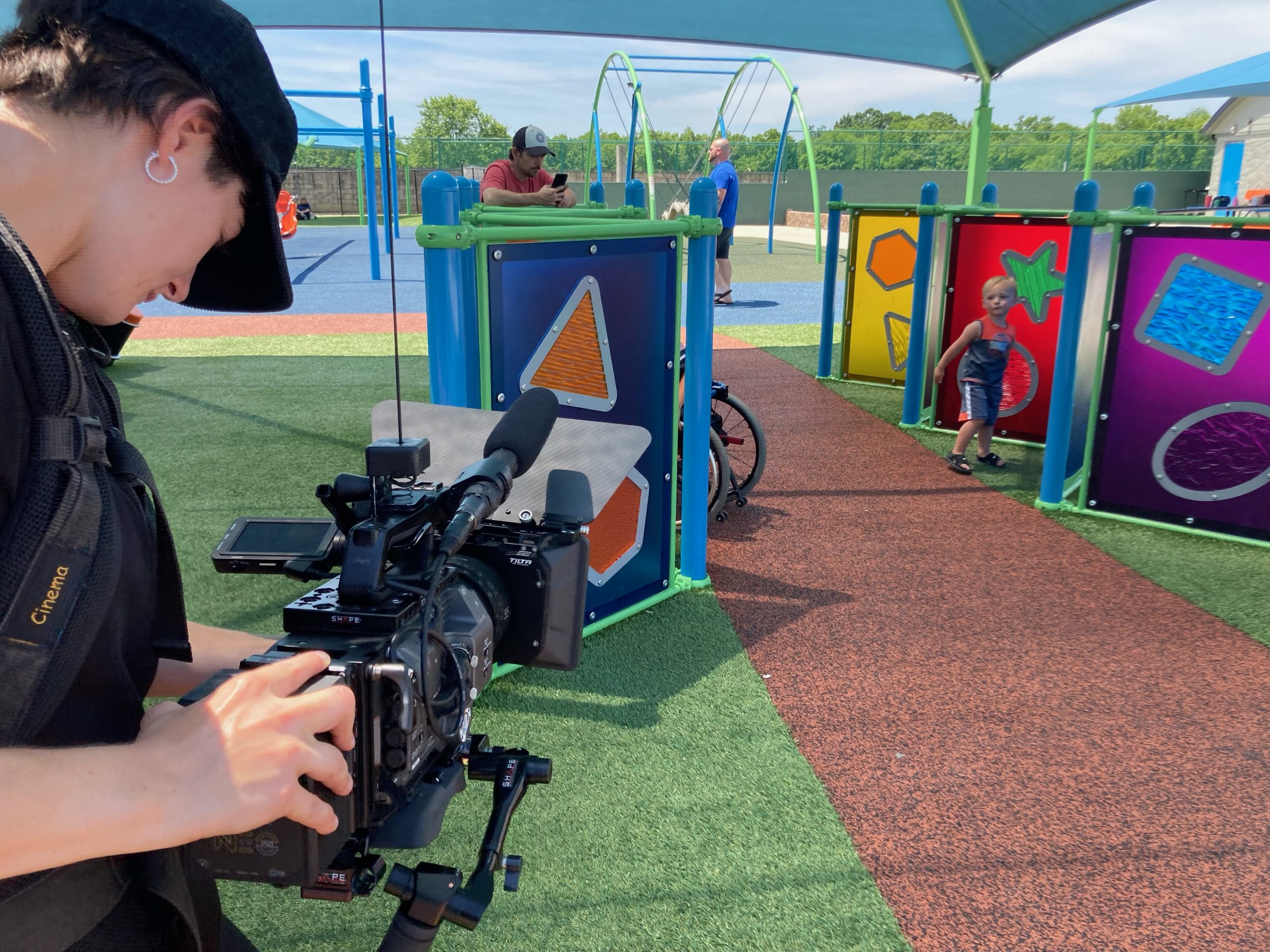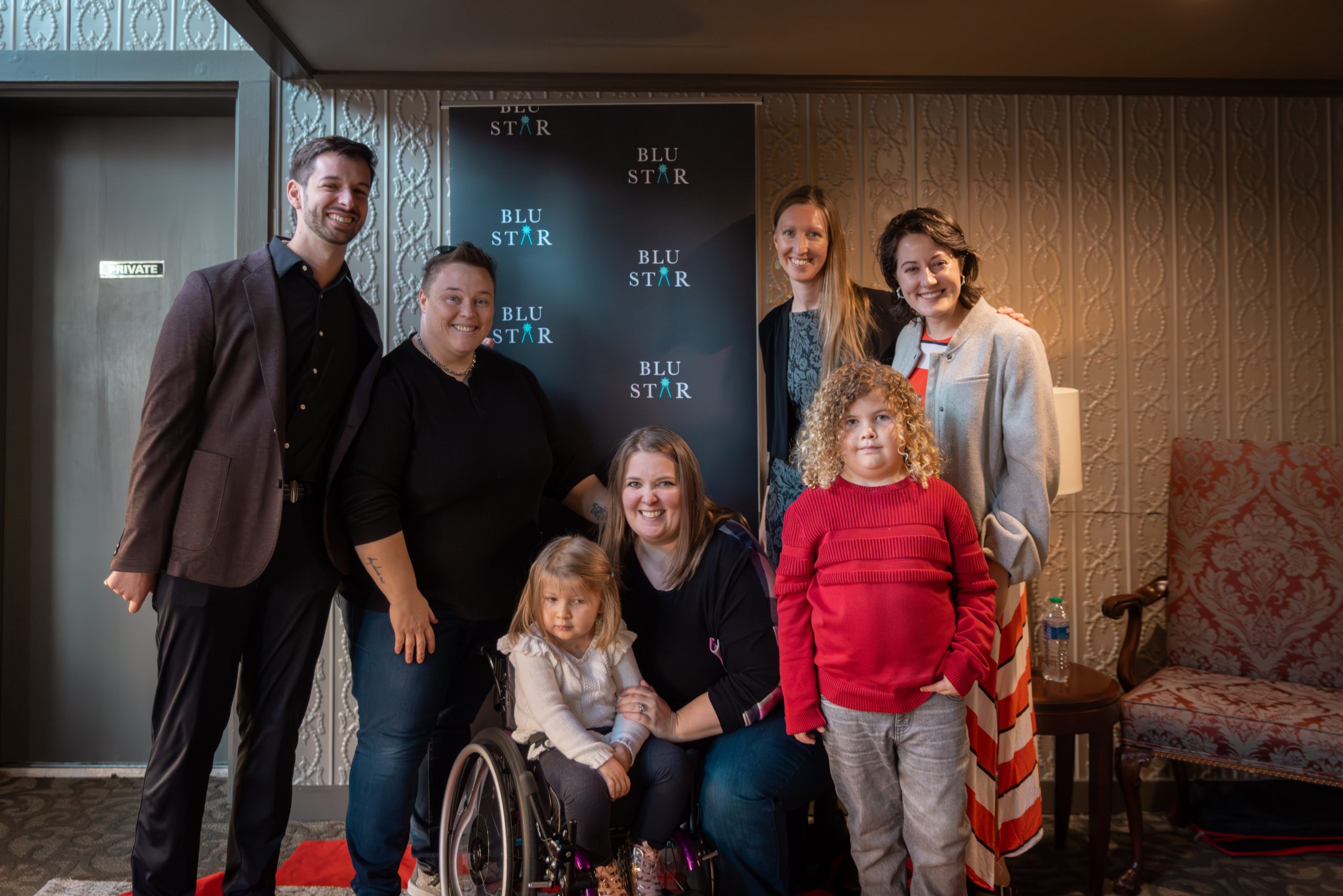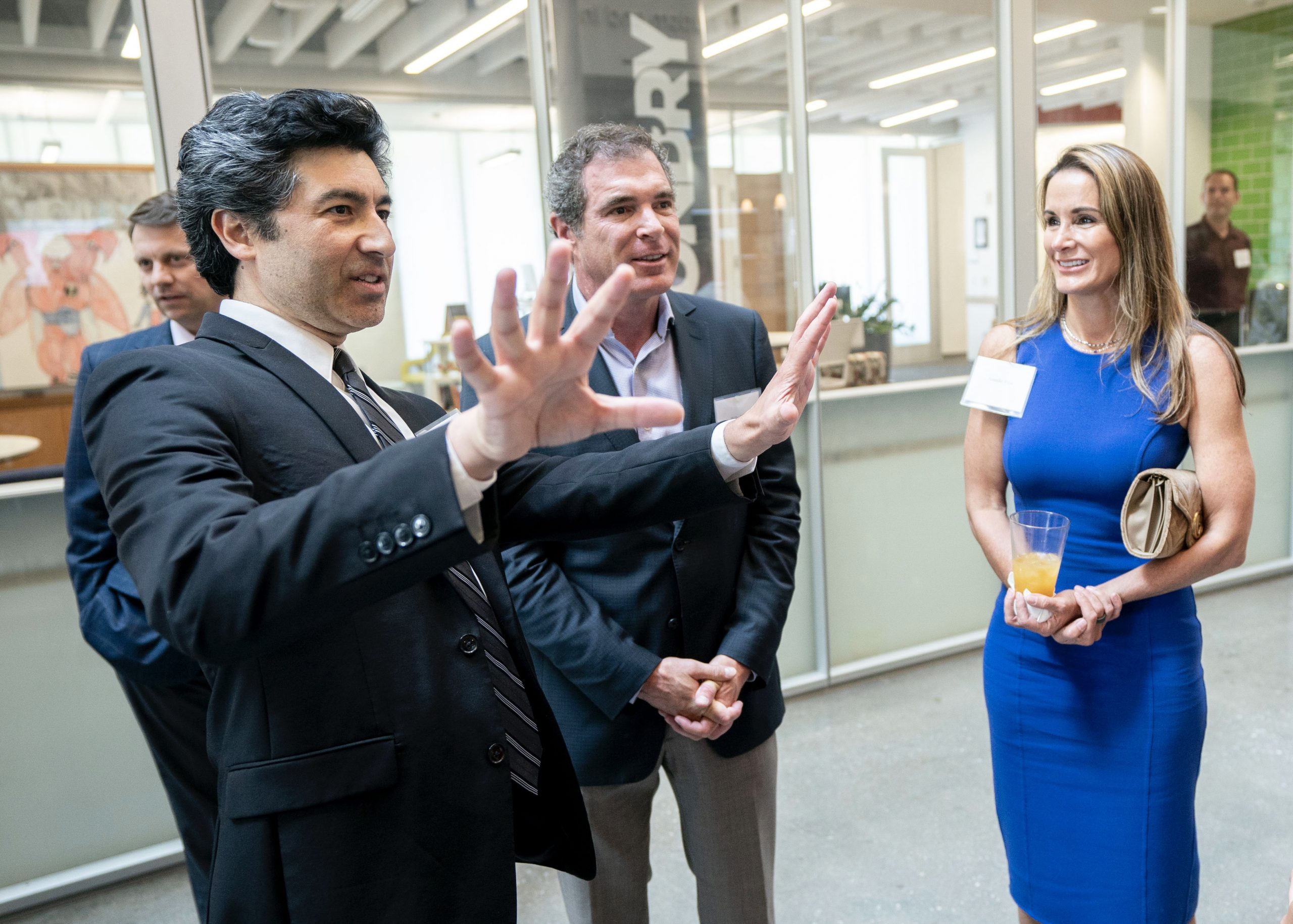By Jenna Somers

At age two Alex Astrella, MEd’23, was diagnosed with Autism Spectrum Disorder. His parents were told that he had little chance of graduating high school or becoming financially independent. Today, Astrella is the founder and CEO of Blu Star Productions, an award-winning film studio that employs artists across the disability spectrum, and a Board Certified Assistant Behavior Analyst. How he got here is as much a story of perseverance and determination as it is of acceptance.
An escape and an education
Shortly after his diagnosis, Astrella’s mother enrolled him in applied behavioral analysis treatment, which he continued from ages two to seven. Treatment helped Astrella understand his diagnosis and excel far beyond his doctor’s predictions.
During these early years, Astrella’s mother also introduced him to movies. They became an escape from the stresses of school and therapy and then turned into his life’s passion. Astrella studied film at the University of California, Santa Barbara. As he approached graduation, he realized he didn’t want to be a part of “the grind”—the film industry’s parlance for beginning as a production assistant and climbing the professional ladder.
Instead, while Astrella figured out how he wanted to pursue a film career, he took his mother’s advice to pursue a career in behavioral therapy. That brought him to the special education program at Vanderbilt Peabody College of education and human development, where he realized he could combine his studies with his passion for film.
From thesis to theaters
At Vanderbilt, Astrella had an epiphany.
“I was going to bed one night and thinking about this idea for a production company where we create films and content for and by people who are on the spectrum or who are neurodivergent and need a platform to share their unique visions,” Astrella said.

That thought inspired the documentary, Free Play, initially a class project that evolved to become Astrella’s master’s degree thesis. Free Play is about the development of Gallatin Miracle Park, Middle Tennessee’s largest all-inclusive playground, located in Gallatin, Tennessee. The film features the story of Karen West, a mother who spearheaded the creation of the park to pay tribute to her daughter and to ensure families had access to a playground that welcomed all children. The film shows how ADA-compliant parks create a sense of full participation within the special needs community.
“Working on Free Play at Peabody made me realize how I was able to mesh both my worlds, and I wondered if I could do this as a career—something that gives back to the special needs community but allows me to pursue film. That’s what I’m doing with Blu Star,” Astrella said.
Free Play premiered in Tennessee in September 2024 as an official selection of the 55th Nashville International Film Festival. It has been recognized at several other film festivals, including winning the Making a Difference Award at the Desert Scape International Film Festival and Best Nonfiction Film at the Point of VU Film Festival. In April, Free Play will be added to the PBS YouTube channel and broadcast on network television as part of PBS’s Reel South series.
Professional synergy
Blu Star’s mission to give opportunities to neurodiverse filmmakers continues to grow. The studio employs five production staff members and works with more than 50 freelance neurodiverse artists who are members of Blue Star’s networking database. The database is also a resource for larger film studios seeking to hire neurodiverse talent.
Recognized as a leader within the autism community, Astrella recently became a Champion of Change with Autism Speaks. He produced the organization’s public service announcement on the neurodiverse workforce, which now has over one million views on YouTube. The PSA features ten people with autism thanking their employers for supporting their careers and explaining what sets them apart from their neurotypical peers.
Filmmaking works in tandem with Astrella’s other career as a Board Certified Assistant Behavior Analyst. Not only does he feel inspired as a therapist helping children with autism, but their stories inspire many of his ideas for film projects.
Closing credits
Reflecting on his growing success, Astrella credits the perseverance and determination his parents instilled in him at a young age. He says that while he faced adversity as a child, his parents always encouraged him to keep pursuing his passions, and he offers the same advice to other neurodiverse young people. “If you keep your dream alive, if you keep the fire burning within you, it’ll happen one way or another,” Astrella said. “You just have to take everything in stride and use neurodiversity as a superpower.”
Astrella also knows that he may have never weaved together his passions for filmmaking and for helping people with special needs if not for the lessons he learned at Peabody, where he was first invited to connect these passions. He credits faculty members like Johanna Staubitz, assistant professor of the practice and director of the applied behavioral analysis program, for making him feel more comfortable among his peers.
“Professor Staubitz had an infectious energy. She fostered engaging dialogue among our classes and was a welcoming person to talk to,” Astrella said.
“I didn’t share with anyone that I was on the spectrum until I posted about it on Instagram the day I graduated from Vanderbilt. Had I not gone to Peabody, I don’t know if I ever would have had the confidence to share that. Peabody gave me the skills and knowledge to talk about it. I also don’t know if Blu Star Productions would exist without my experience at Peabody. Maybe one day I would have created a production studio, but it probably wouldn’t have the impact of Blu Star.”







